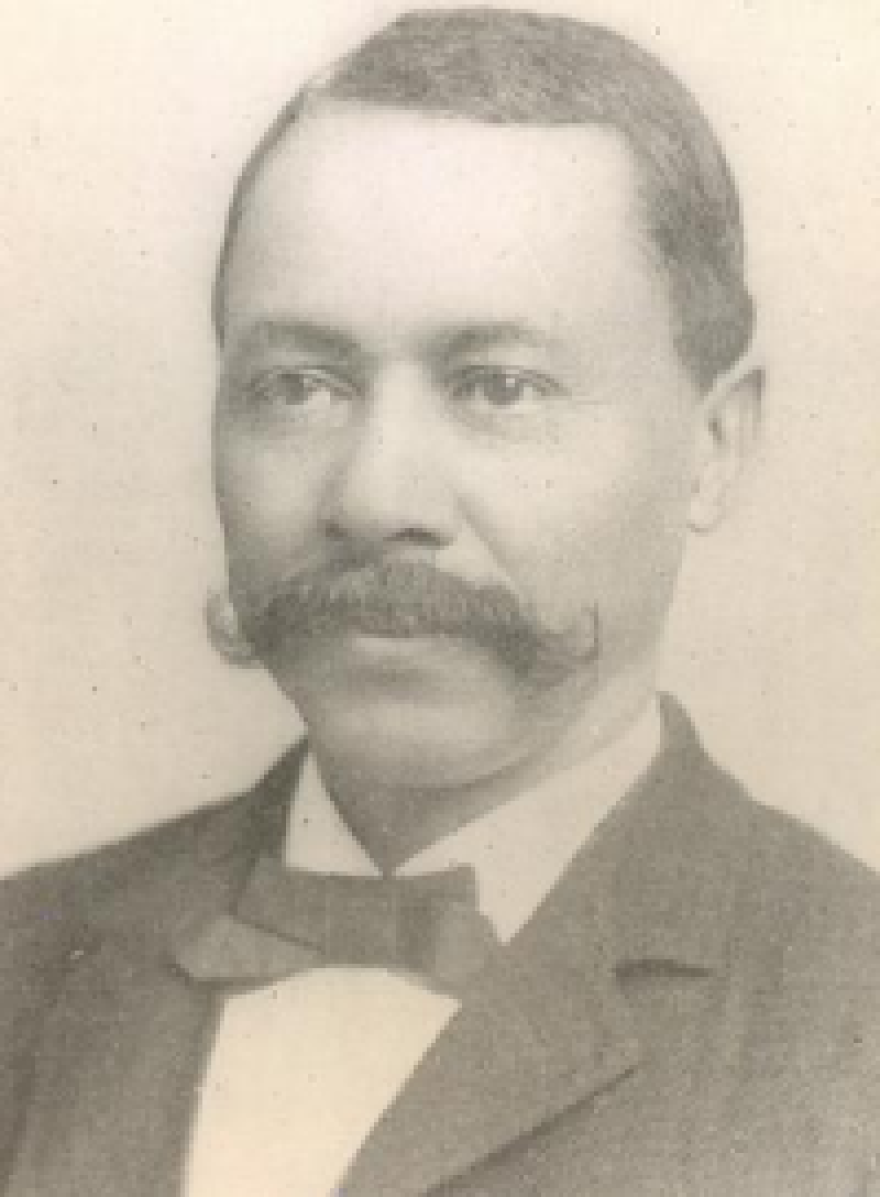A tussle over the renaming of a street in New Britain has illuminated the life of a little known, but important Connecticut abolitionist and diplomat.
Democrats on the New Britain City Council want to rename Paul Manafort Sr. Drive. The road, which borders Central Connecticut State University was named for former Trump campaign manager Paul Manafort's father, a local business leader and former mayor of the city.
But Democrats would rather honor Ebenezer Bassett. They’re currently hoping to override a veto imposed by Mayor Erin Stewart.
Most people know the name Paul Manafort, but who is Ebenezer Bassett, and what are his ties to New Britain?
Ebenezer Don Carlos Bassett was born in Derby, Connecticut in 1833. Bassett’s parents, free blacks in a state where slavery was still legal, ensured their son was well educated. He became the first black student to enroll at the Connecticut Normal School in New Britain, an institution which later became Central Connecticut State University. Bassett flourished in New Britain, according to Christopher Teal, a U.S. diplomat, and author of the book, Hero of Hispaniola: America’s First Black Diplomat.
“He really had this goal of becoming an educator, and achieved success right away,” said Teal. “In fact for graduation they asked him to be the graduation speaker, and he spoke about education he spoke about being a teacher.”
Bassett graduated with honors in 1853. His first teaching job was in New Haven, where he met and began a lifelong friendship with abolitionist Frederick Douglass.
“It was an important friendship for Bassett because Douglass helped him form his world view on the need to not only educate children but to give them this activist background as well,” said Teal.
Bassett eventually moved to Philadelphia to become principal of the Institute for Colored Youth. It was in Philadelphia that Bassett became one of the most eloquent voices in the anti-slavery movement. He also urged young black men in the city to join the Union Army.
After the Civil War, Bassett accomplished another first. In 1869, President Ulysses S. Grant appointed him as Minster Resident to Haiti, making him the first Black diplomat in U.S. history.
Bassett arrived to find Haiti embroiled in a bitter civil war. Thousands of Haitians, mainly women and children had fled rebel forces, seeking asylum at the U.S Consulate in Port-Au-Prince. U.S. Policy at the time was to accept no refugees. Despite zero diplomatic experience, Bassett’s quick thinking saved many Haitians and help normalize relationships between the two countries.
“What Bassett did was essentially go out and negotiate with the rebels,” explained Teal. "He made, I think, a very bold comment to the new Haitian leader of the Rebel General to say it is really a violation of norms and law, and it's against humanity to try and kill these civilians in this sort of way. And if you want to have good relations with the United States we need to be able to negotiate to let these people go.”

The refugees were allowed to return to their homes unharmed.
Teal considers a Bassett a hero, and an important figure in more ways than one.
“Not simply because he was this pioneering African American diplomat, he was really an early advocate for pushing human rights issues as part of U.S. foreign policy. He was a courageous leader.”
Bassett died in 1908, and is buried in Grove Cemetery in New Haven.





